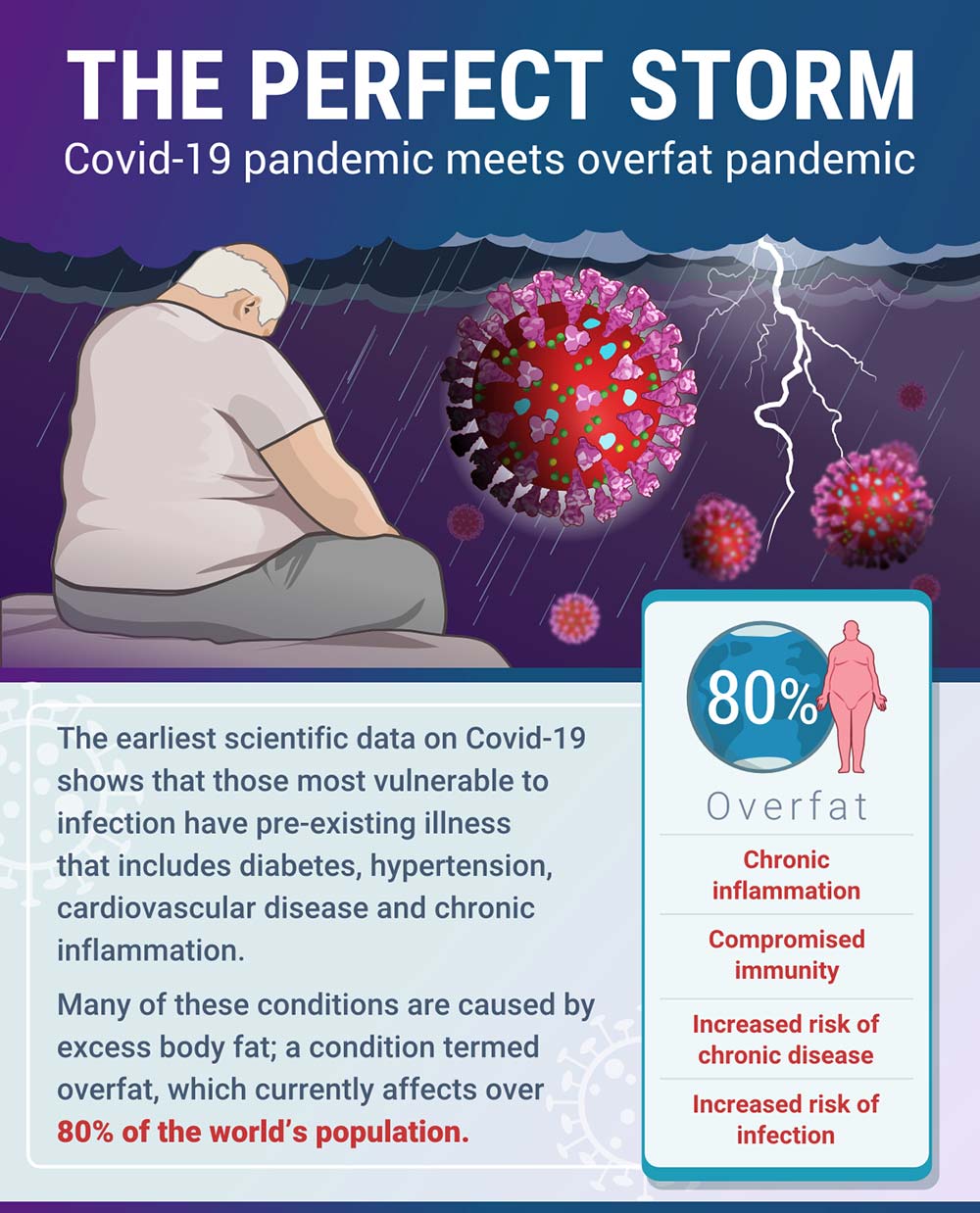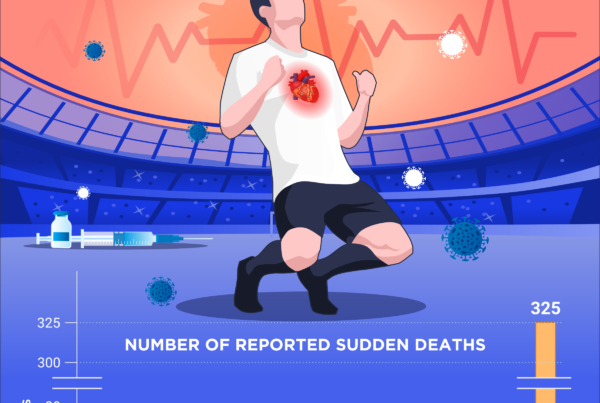
When COVID-19 and Overfat collide the result could be a global health catastrophe
The headlong collision of two global pandemics — COVID-19 and Overfat — could be a “perfect storm” for a worldwide health catastrophe, according to researchers.
Overfat, defined as excess body fat that impairs health, includes not only people who are obese or “overweight” but also millions of people who are considered to be normal weight. Over 80 percent of adults in the world may be overfat.
Scientists have demonstrated that the two current pandemics are intertwined. It is well-known that chronic disease predisposes one to COVID-19 infection. These conditions include diabetes, hypertension, heart disease and others, and are often secondary to the overfat condition. Impaired immunity and the risk of infection can also result from being overfat.
Researchers Philip Maffetone and Paul Laursen’s forthcoming paper “The Perfect Storm: COVID-19 pandemic meets overfat pandemic,” will be published in Frontiers in Public Health.
Many who get COVID-19 will recover with health and a well functioning immune system. After the 2009 swine flu (H1N1) pandemic, it was discovered that obesity was an independent risk factor for infection. Today, we know that obesity is the tip of a large overfat iceberg, as 40 percent or more of non-obese, normal-weight individuals worldwide can still have excess body fat.
While testing for COVID-19 remains elusive, individuals may test for being overfat simply by measuring their waist. The waist measure should be less than half of a person’s height, according to the researchers
In particular, increased abdominal fat may be most damaging to immune function and overall health. Excess body fat contains numerous different immune cells that, unlike healthy fat, do not function properly to protect the body against infection.
The authors state that perhaps an important global lesson already learned during the COVID-19 pandemic is that it is easier to prevent viral infections than to treat them. Individuals and governments need not only practice current mitigation strategies such as safe distancing, but must focus on overall health.
People can control much when it comes to their health. The prevention of infections through a healthy immune system — including maintaining proper levels of body fat — is strongly associated with a healthy lifestyle.










